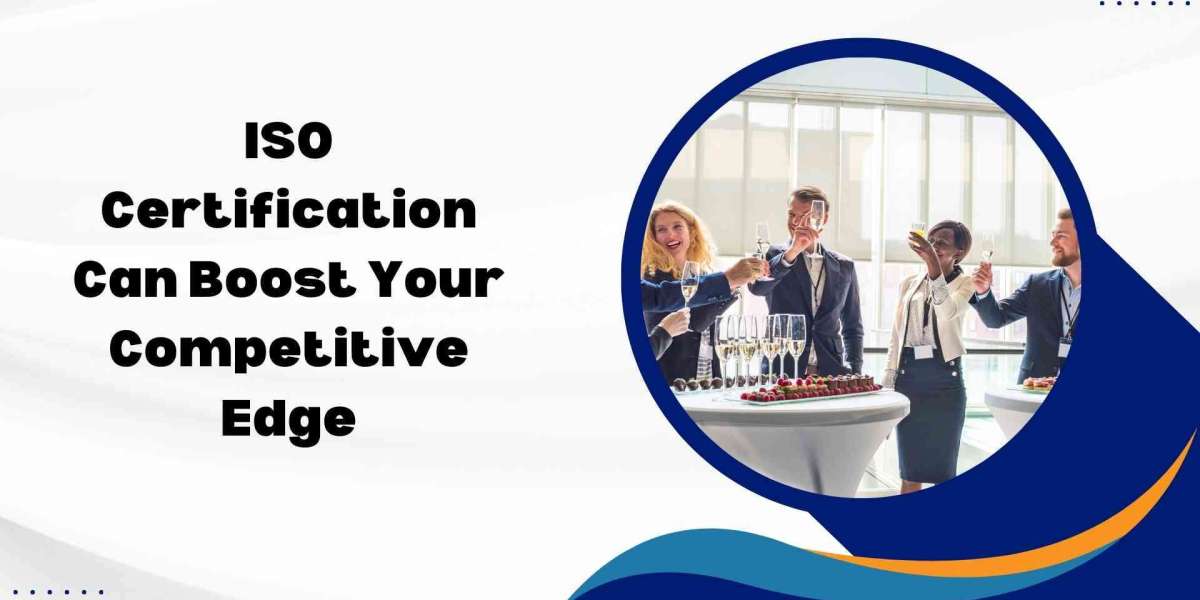In today’s highly competitive business environment, companies are constantly seeking ways to differentiate themselves and gain an advantage over their rivals. One of the most effective strategies to achieve this is by obtaining ISO Certification. ISO, or the International Organization for Standardization, provides a range of standards that can significantly enhance a company's credibility, operational efficiency, and overall market position. This article explores how ISO certification can boost your competitive edge, providing detailed insights into the benefits and strategic advantages it offers.
Understanding ISO Certification
ISO certification refers to the process of obtaining a formal acknowledgment from an accredited body that a company adheres to international standards in various areas of its operations. These standards cover a wide range of aspects, including quality management (ISO 9001), environmental management (ISO 14001), and occupational health and safety (ISO 45001), among others. Achieving ISO certification involves meeting stringent criteria set forth by these standards, demonstrating a commitment to maintaining high-quality processes, continuous improvement, and customer satisfaction.
Enhancing Credibility and Trust
One of the primary ways ISO certification boosts your competitive edge is by enhancing your company's credibility and trustworthiness. Here’s how:
Global Recognition: ISO standards are internationally recognized and respected. By obtaining ISO certification, your company gains a mark of quality and reliability that is acknowledged worldwide. This can be particularly advantageous when entering new markets or competing with international companies.
Building Customer Confidence: ISO certification signals to customers that your business meets high standards and adheres to rigorous quality controls. This assurance can increase customer trust, leading to higher levels of customer satisfaction and loyalty.
Competitive Differentiation: In industries where multiple businesses offer similar products or services, ISO certification can set your company apart. It provides a competitive edge by demonstrating a commitment to quality and best practices, making your business a more attractive choice for customers and partners.
Improving Operational Efficiency
ISO certification is not just about external validation; it also brings significant internal benefits, particularly in terms of operational efficiency:
Streamlined Processes: ISO standards require businesses to implement standardized processes and procedures. This leads to improved consistency and efficiency in operations. For example, ISO 9001, which focuses on quality management, helps organizations streamline their processes, reduce waste, and enhance productivity.
Enhanced Resource Management: ISO standards often include guidelines for effective resource management. This can lead to better utilization of resources, including materials, time, and human resources, which can reduce costs and increase overall efficiency.
Continuous Improvement: ISO certification promotes a culture of continuous improvement. Businesses are encouraged to regularly assess their processes, identify areas for improvement, and implement changes. This ongoing focus on improvement helps companies stay ahead of industry trends and maintain a competitive advantage.
Expanding Market Opportunities
ISO certification can open new doors and expand market opportunities in several ways:
Access to New Markets: Many international markets and large organizations require their suppliers to be ISO certified. By obtaining ISO certification, your business becomes eligible to bid on contracts and opportunities that may have previously been out of reach.
Enhanced Business Relationships: ISO certification can improve your relationships with customers, suppliers, and partners. It demonstrates a commitment to quality and reliability, which can lead to more favorable terms, stronger partnerships, and increased business opportunities.
Compliance with Regulatory Requirements: In some industries, ISO certification is a prerequisite for compliance with regulatory requirements. By meeting these standards, your business can avoid legal and regulatory issues and gain access to markets with stringent compliance standards.
Boosting Employee Morale and Engagement
ISO certification also has a positive impact on employee morale and engagement:
Clear Guidelines and Expectations: ISO standards provide clear guidelines and expectations for employees, leading to a more structured and organized work environment. This clarity can improve job satisfaction and reduce confusion.
Involvement in Improvement Initiatives: The focus on continuous improvement encourages employees to contribute ideas and participate in process enhancements. This involvement can boost morale, as employees feel their contributions are valued and have a direct impact on the company’s success.
Professional Development: Achieving and maintaining ISO certification often involves training and development for employees. This investment in their skills and knowledge can lead to higher job satisfaction and increased loyalty to the company.
Strengthening Risk Management
ISO certification also enhances your company’s risk management capabilities:
Risk Identification and Mitigation: ISO standards often include requirements for identifying and managing risks. This proactive approach helps businesses anticipate potential challenges and implement strategies to mitigate them, reducing the likelihood of disruptions.
Improved Decision-Making: With standardized processes and data-driven insights, businesses can make more informed decisions. This improved decision-making capability can help navigate market changes, manage risks effectively, and seize new opportunities.
Enhanced Crisis Management: ISO certification can improve your company’s ability to respond to and recover from crises. Standards such as ISO 22301 (Business Continuity Management) provide frameworks for ensuring business continuity and resilience in the face of unexpected events.
Building a Reputation for Excellence
ISO certification contributes to building a reputation for excellence, which can have a lasting impact on your business:
Positive Brand Image: ISO certification enhances your brand’s image by associating it with quality, reliability, and industry best practices. This positive brand perception can attract new customers, retain existing ones, and create a strong market presence.
Industry Recognition: Many industries recognize and value ISO certification. Being certified can lead to industry awards, accolades, and recognition, further solidifying your position as a leader in your field.
Customer Testimonials and Referrals: Satisfied customers often share their positive experiences, and ISO certification can be a compelling factor in these testimonials. A strong reputation built on ISO standards can lead to increased referrals and business growth.
Note: You can also Apply for ISO 9001 Certification from our website
Conclusion
ISO certification offers numerous advantages that can significantly boost your competitive edge. By enhancing credibility, improving operational efficiency, expanding market opportunities, boosting employee morale, strengthening risk management, and building a reputation for excellence, ISO certification positions your business for long-term success in a competitive market. As companies strive to stand out and excel, ISO certification provides a powerful tool to differentiate themselves, demonstrate commitment to quality, and achieve sustained growth and success.








